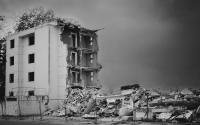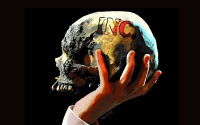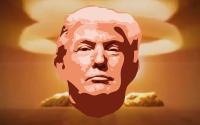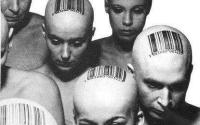11 December 2006David Usborne
Augusto Pinochet, the former dictator who ruled Chile with an iron fist from 1973 until 1990, died in a high-security military hospital in the capital, Santiago, yesterday. His death from heart failure leaves a disputed legacy of brutal political repression; salvation from Marxism; and civil turmoil.
Doctors said they rushed the discredited dictator back into the hospital's intensive care unit yesterday morning after a sudden deterioration of his condition. He was only released from the unit last Thursday where he had been under treatment for an acute heart attack suffered one week ago after which he underwent an emergency angioplasty to widen a clogged artery.
In a brief announcement, the hospital said the one-time military strongman - who in recent years had been hounded by charges at home and abroad of human rights violations, corruption and fraud - had died at 2.15pm local time in Chile. He was 91.
His death sparked champagne-soaked celebrations, skirmishes with police and displays of lasting devotion as Chileans took an anguished look back at the dictator who brutally ruled for 17 years.
Celebrations broke out in several parts of the Chilean capital. At a major plaza, hundreds of cheering, flag-waving people gathered to pop champagne corks and toss confetti.
Outside the hospital where Pinochet died, Chileans who believed he saved them from communism wept and hoisted posters with the general's image. Some chanted that Pinochet and his feared secret police were Chile's saviours. " He will live forever in my memory - I love him as much as my own children," said Margarita Sanchez.
Meanwhile, police clashed with demonstrators who threw rocks and erected fire barricades that sent up thick plumes of smoke and blocked traffic on the city's main avenue. Tear gas and water cannons were used to disperse the protesters, many of them masked, who quickly regrouped.
Officials blamed the violence on a small contingent among the thousands of demonstrators who poured into the streets to denounce Pinochet's legacy. At least two bank offices were damaged.
The clashes spread past midnight to several working class districts and police said 23 officers, including a major and a captain, were injured.
Deputy Interior Minister Felipe Harboe said there had been a number of arrests but did not give a figure.
"The government makes an appeal to peace," Harboe said. "We do not want people to be affected today by facts of the past."
Chile's government said Pinochet will not receive the state funeral normally granted to former presidents, but only military honours at the Santiago military academy.
This morning, Pinochet's coffin was transferred to the Military Academy.
The coffin, covered with a Chilean flag and Pinochet's military hat and sword on top if it, was placed in a large hall, but the media was kept at a distance and could hardly see it through large windows.
As he requested, Pinochet will be cremated, according to son Marco Antonio, to avoid desecration of his tomb by "people who always hated him."
The government said it had authorised the Chilean flag to be flown at half-staff at military barracks nationwide.
In a carefully measured statement, Foreign Secretary Margaret Beckett said: " We note the passing of General Pinochet and want to pay tribute to the remarkable progress that Chile has made over the last 15 years as an open, stable and prosperous democracy."
That contrasted with the office of former prime minister Margaret Thatcher, a staunch ally of the former dictator, which said she was "greatly saddened" by news of his death.
Human rights activists responded more bluntly to the passing of a man who had become a pariah to most of the world. "Pinochet has died, and I don't think he's going to heaven," commented the human rights lawyer Geoffrey Robertson.
"His death does rob us of a proper trial and retribution for his victims." Years of illness allowed the General's lawyers to fend off court proceedings in his native Chile. For nearly two decades as Latin America's most infamous dictator, he was accused of ordering the deaths and disappearances of at least 3,000 Chileans, many killed at the hands of his secret police.
But even his most loyal supporters distanced themselves from Pinochet in 2004, however, when it emerged he had allegedly stashed as much as $27m (£14m) in foreign bank accounts.
Among those who felt betrayed by Pinochet were supporters who had helped fund his reconstruction efforts in the first years of his dictatorship - and may also have donated cash for his legal defence after he was arrested in London on human rights charges in 1998. He was held in Britain for 16 months.
In recent weeks, the General, faced new charges connected to the death of two bodyguards for Salvador Allende - the man from who Pinochet seized power - and was under house arrest.
For many Chileans, consigning Pinochet to history is long overdue. Even after he lost the presidency in 1990 in a national referendum, he remained commander-in-chief of the nation's armed forces for another eight years..
As the Pinochet era gradually faded, Chile emerged as one of Latin America's most stable democracies, marked earlier this year by the election of Michelle Bachelet of the centre-left Concertacion Coalition, which has ruled Chile since 1990.
The pencil-shaped Andean nation also remains in an economic boom, fed largely by mineral wealth and, arguably, by the free-market policies first introduced by Pinochet in place of the socialist doctrines of Mr Allende.
Divisions over the legacy of Pinochet still remain in Chile. "He's the biggest criminal in the history of our country," said Sola Sierra of the Association of Relatives of the Detained and Disappeared. But a rightist legislator, Iván Moreira called him "a liberator ... who brought democracy back to Chile." He went on: "He saved us from Marxism, from becoming a satellite colony of Soviet-Cuban imperialism."
Crediting Pinochet with the economic health of Chile today does not come easily as evidence has accumulated over the years of his utter disrespect of human rights. His regime systematically snatched political opponents from the streets and sent assassins around the globe to wipe out critics and resistors.
A Truth Commission in Chile established that 3,197 Chileans were killed during Pinochet's years in power and another 250,000 were locked up.
Amnesty International said Pinochet's death "should be a wake-up call for the authorities in Chile and governments everywhere, reminding them of the importance of speedy justice for human rights crimes, something Pinochet has now escaped."
http://news.independent.co.uk/world/americas/article2064693.ece






